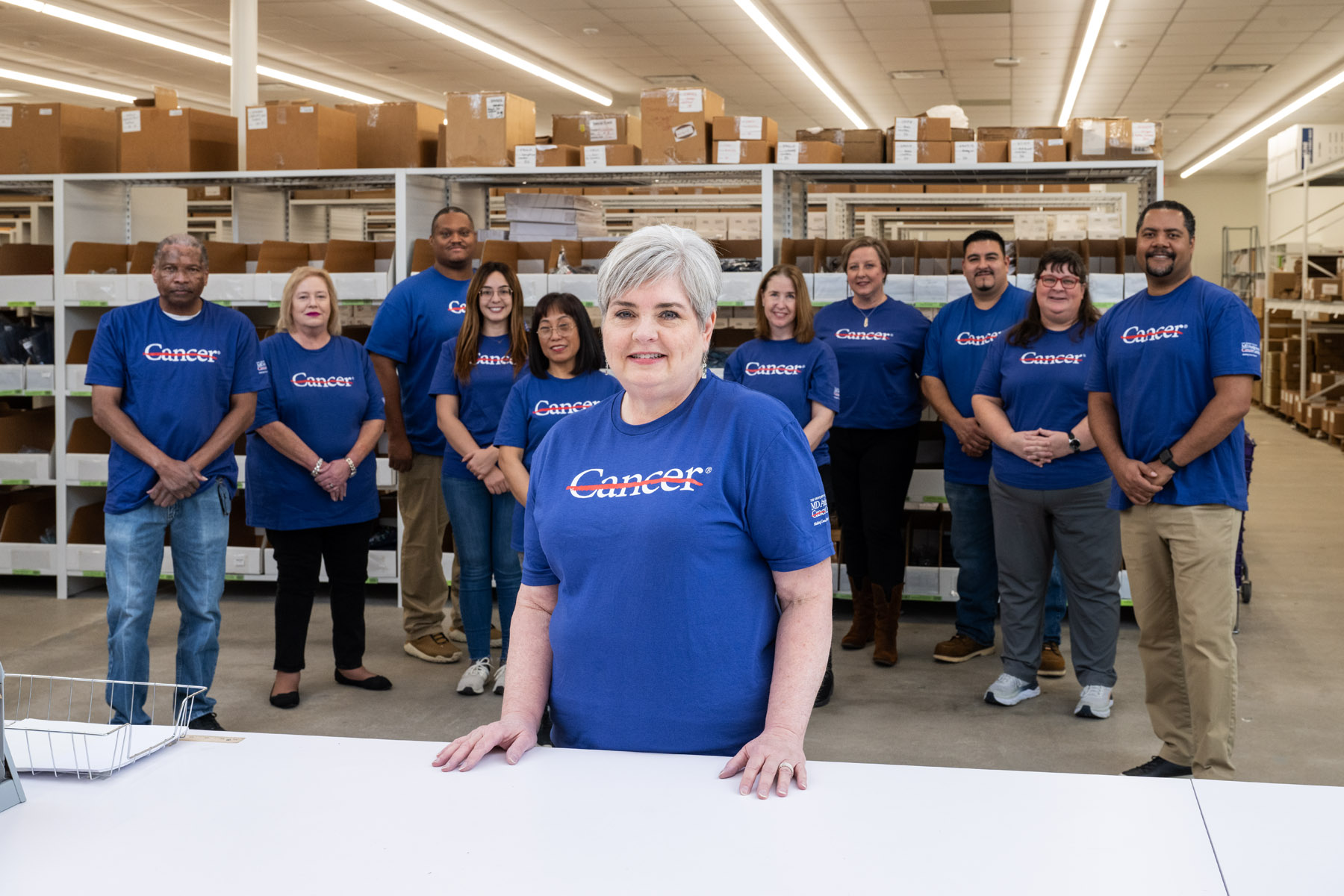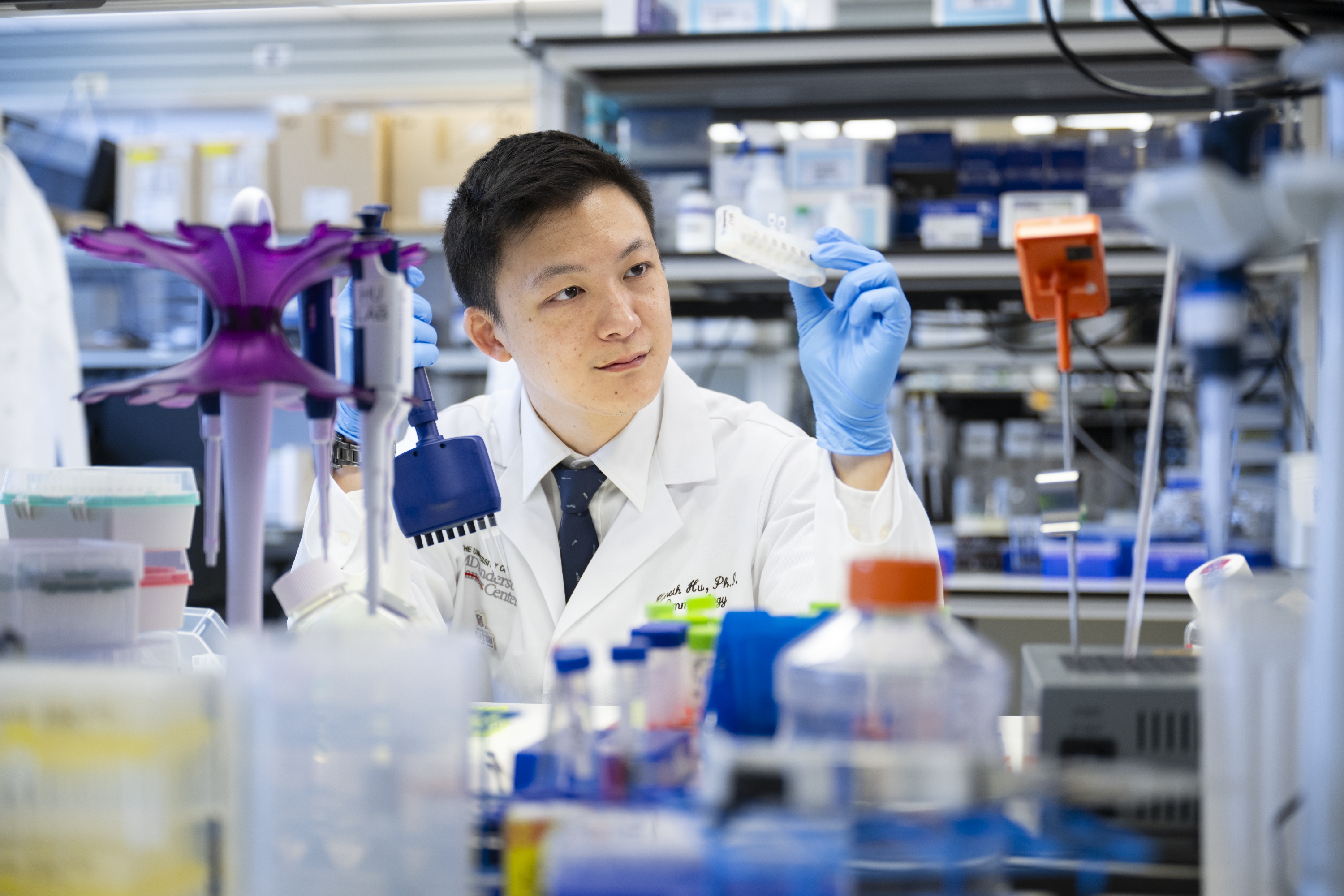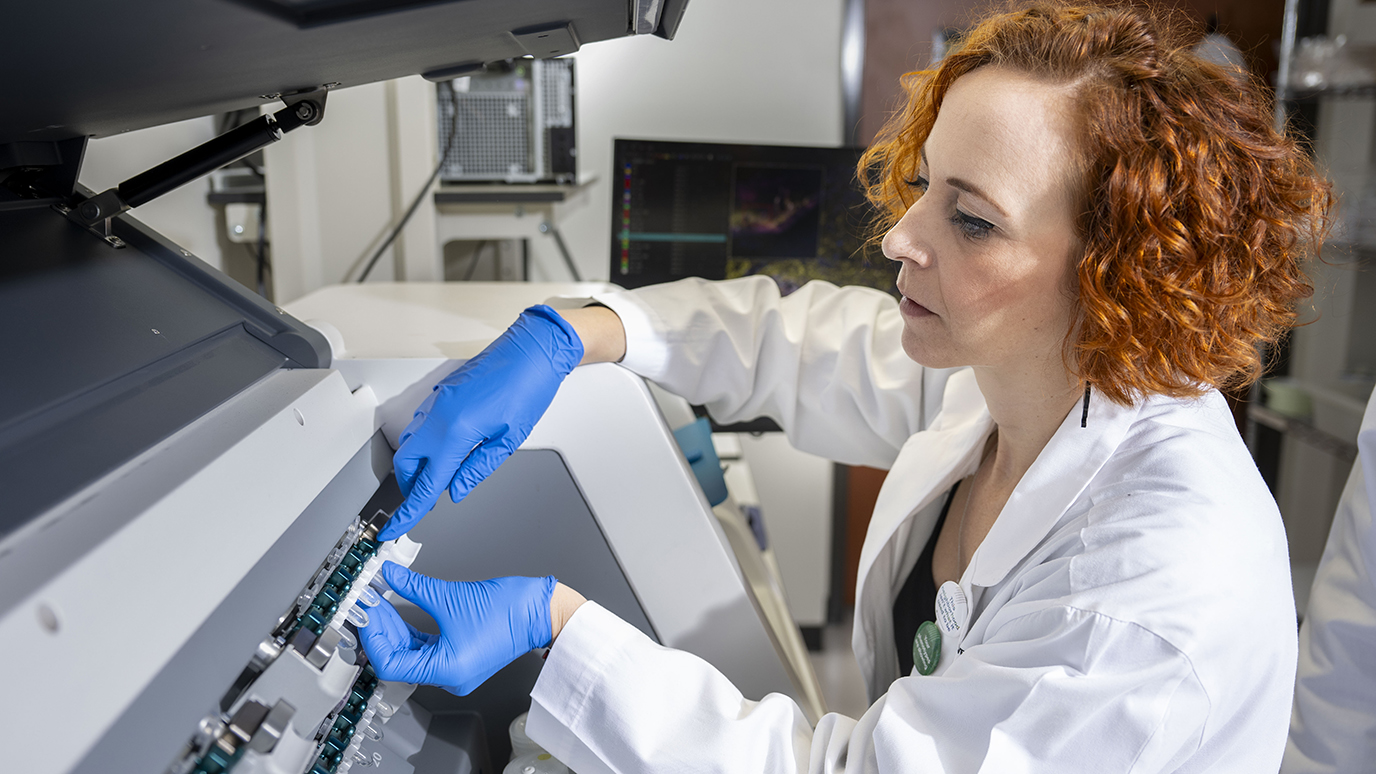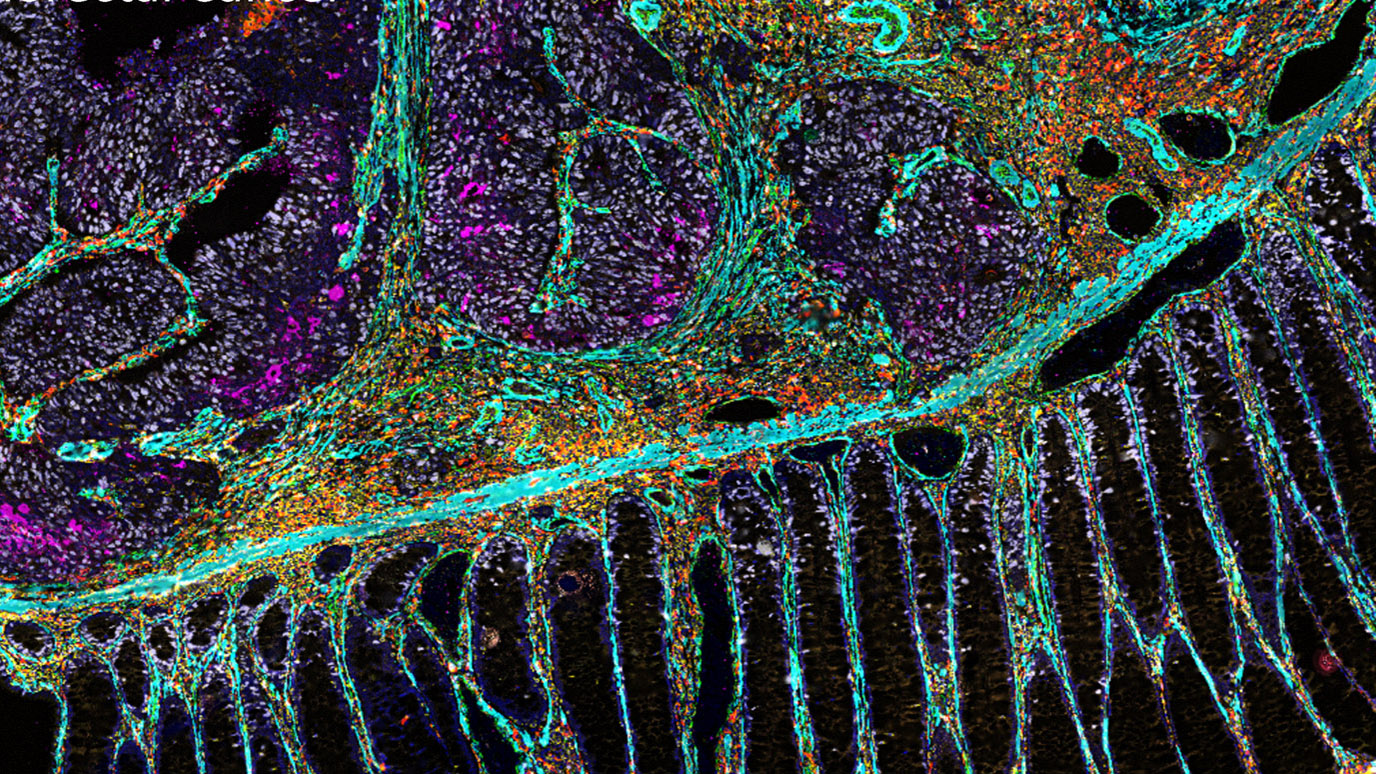- Diseases
- Acoustic Neuroma (14)
- Adrenal Gland Tumor (24)
- Anal Cancer (66)
- Anemia (2)
- Appendix Cancer (16)
- Bile Duct Cancer (28)
- Bladder Cancer (68)
- Brain Metastases (28)
- Brain Tumor (228)
- Breast Cancer (716)
- Breast Implant-Associated Anaplastic Large Cell Lymphoma (2)
- Cancer of Unknown Primary (4)
- Carcinoid Tumor (8)
- Cervical Cancer (154)
- Colon Cancer (164)
- Colorectal Cancer (110)
- Endocrine Tumor (4)
- Esophageal Cancer (42)
- Eye Cancer (36)
- Fallopian Tube Cancer (6)
- Germ Cell Tumor (4)
- Gestational Trophoblastic Disease (2)
- Head and Neck Cancer (6)
- Kidney Cancer (124)
- Leukemia (344)
- Liver Cancer (50)
- Lung Cancer (288)
- Lymphoma (284)
- Mesothelioma (14)
- Metastasis (30)
- Multiple Myeloma (98)
- Myelodysplastic Syndrome (60)
- Myeloproliferative Neoplasm (4)
- Neuroendocrine Tumors (16)
- Oral Cancer (100)
- Ovarian Cancer (170)
- Pancreatic Cancer (166)
- Parathyroid Disease (2)
- Penile Cancer (14)
- Pituitary Tumor (6)
- Prostate Cancer (144)
- Rectal Cancer (58)
- Renal Medullary Carcinoma (6)
- Salivary Gland Cancer (14)
- Sarcoma (236)
- Skin Cancer (294)
- Skull Base Tumors (56)
- Spinal Tumor (12)
- Stomach Cancer (60)
- Testicular Cancer (28)
- Throat Cancer (90)
- Thymoma (6)
- Thyroid Cancer (98)
- Tonsil Cancer (30)
- Uterine Cancer (78)
- Vaginal Cancer (14)
- Vulvar Cancer (18)
- Cancer Topic
- Adolescent and Young Adult Cancer Issues (20)
- Advance Care Planning (10)
- Biostatistics (2)
- Blood Donation (18)
- Bone Health (8)
- COVID-19 (362)
- Cancer Recurrence (120)
- Childhood Cancer Issues (120)
- Clinical Trials (622)
- Complementary Integrative Medicine (24)
- Cytogenetics (2)
- DNA Methylation (4)
- Diagnosis (226)
- Epigenetics (6)
- Fertility (62)
- Follow-up Guidelines (2)
- Health Disparities (14)
- Hereditary Cancer Syndromes (122)
- Immunology (18)
- Li-Fraumeni Syndrome (8)
- Mental Health (118)
- Molecular Diagnostics (8)
- Pain Management (62)
- Palliative Care (8)
- Pathology (10)
- Physical Therapy (18)
- Pregnancy (18)
- Prevention (890)
- Research (388)
- Second Opinion (74)
- Sexuality (16)
- Side Effects (602)
- Sleep Disorders (10)
- Stem Cell Transplantation Cellular Therapy (216)
- Support (404)
- Survivorship (322)
- Symptoms (184)
- Treatment (1768)
Researcher wants to use epigenetics to advance cancer treatment
4 minute read | Published April 29, 2024
Medically Reviewed | Last reviewed by an MD Anderson Cancer Center medical professional on April 29, 2024
When Angela Ting, Ph.D., was in her third year of college at The University of British Columbia, she still hadn’t decided on a career. She’d always performed well academically but hadn’t really found one subject she loved enough to build a career from.
That was until she began attending a journal club. Ting was majoring in genetics with a minor in psychology. In the journal club, she and her classmates read scientific papers published in research journals and then discussed what they learned.
“One of the papers my professor picked was on the epigenetics phenomenon in plants,” says Ting. “I thought it was the coolest thing because, up until that point, everything I’d learned in my classes was about genetics, like DNA sequences and mutations.”
Epigenetics is the study of heritable traits that affect gene expression and cellular differentiation without changes to the DNA sequence.
“That club was my first exposure to the concept of epigenetics,” says Ting. “I found it so fascinating.”
Interest leads to a career in research
Ting grew up in Taiwan before moving to Canada at age 13. After discovering her interest in epigenetics in college, she sought out graduate school programs with professors who worked in this research area. She decided to attend Johns Hopkins University School of Medicine, where she took a deeper dive into epigenetics.
“I kept an open mind when entering graduate school, recognizing that there are many exciting topics in biology that I was ignorant about,” she says. “For instance, at the time, gene therapy was being highlighted as a potential cure for a lot of diseases, so I did a rotation in gene therapy. However, I joined a lab that focused on DNA methylation. That cemented my interest.”
Ting earned her Ph.D. based on her graduate thesis on DNA methylation in cancer.
“As I worked on it more, I realized there are still a lot of questions we don’t have the answers to,” she says. “These have potentially far-reaching, practical clinical implications and can shape how we think about treating this disease.”
Ting also met her husband, Byron Lee, M.D., Ph.D., at Johns Hopkins, and after graduation they moved to Cleveland, where she started her own research lab, and he began his residency. Ting’s research focused on DNA methylation in different types of cancer, such as prostate cancer and colon cancer.
Finding the perfect fit at MD Anderson
After they spent 15 years in Cleveland furthering their research, establishing professional and personal relationships and starting a family, Ting and Lee considered a career move.
“After you’ve been in one place for a while, you get comfortable, and a change in environment can shake things up a bit,” she says.
When opportunities for both of them opened up at MD Anderson – hers in Epigenetics and Molecular Carcinogenesis and his in Urology – the move to Houston just made sense.
“When we visited MD Anderson, we were really impressed by what we saw and the people we met,” says Ting. “And the Department of Epigenetics and Molecular Carcinogenesis houses some of the pioneers in my field.”
She recalls reading papers by Xiaodong Cheng, Ph.D., and Taiping Chen, Ph.D., as a graduate student first learning about DNA methylation.
“It was a little intimidating because it was like I was meeting my scientific idols,” she says. “I felt like this was going to be a fantastic scientific environment for me. And MD Anderson also has a reputation for being the world’s premier cancer research institution.”
At that point, the decision was clear.
“We said if we were going to make a move at this stage in our careers, it had to be something that would raise our ability to discover new things and connect with others in a significant way,” says Ting. “We both felt that was a distinct possibility for us at MD Anderson.”
They moved to Houston in January 2023.
“I think we made a good decision,” says Ting.
Advancing epigenetics research at MD Anderson
At MD Anderson, Ting serves as principal investigator of her own laboratory. The Ting Lab focuses on research related to DNA methylation: where it is, what it does and how it impacts disease development.
“Early on, we did mapping studies to figure out where DNA methylation differences are in cancer cells versus normal cells or in different subtypes of cancer,” she says. “Those early studies informed us on a few things we wanted to answer about DNA methylation.”
The Ting Lab focuses on:
- Pioneering technical and computational tools for genome-wide DNA methylation assessment
- Defining novel and clinically relevant functions for DNA methylation
- Delineating the mechanics of DNA methylation in cancer
- GenitoUrinary Development Molecular Anatomy Project (GUDMAP) Atlas development
Ting appreciates the collaborative nature of the research she does at MD Anderson. For example, she’s collaborating with her husband on the GUDMAP project and hopes they can leverage the knowledge to consider therapeutic interventions for bladder cancer patients.
“None of what I do would be possible without the fantastic group of people that I work with,” she says. “I’m so thankful for everybody: doctors, scientists, researchers and my lab members. Having the group of people that I have and have had in the past is what makes possible anything that we publish and anything that we will do in the future.”
Related Cancerwise Stories

I felt like this was going to be a fantastic scientific environment for me.
Angela Ting, Ph.D.
Researcher






